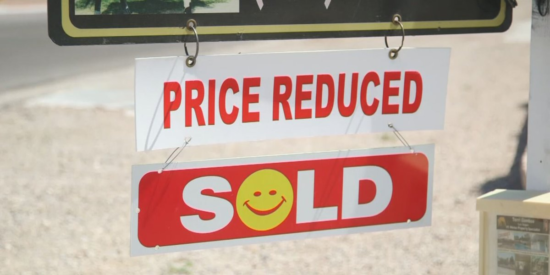How to start a real estate business in 2021
Ross Kimbarovsky
If you want to take the plunge and start your own real estate business instead of just treating real estate as a career while working for someone else, there is a lot to consider.
Here’s what you need to know to plan, start, and grow a real estate business.
>> This is a condensed version of How to Start a Real Estate Business: The Definitive Step-by-Step Guide. Read the full guide to get more actionable insights and resources to help you start your real estate business.
The real estate market is enormous. There are about 2 million active real estate licensees and over 86,000 real estate brokerage firms in the United States. The median gross income for a real estate licensee is around $42,000.
According to the National Association of Realtors, annual sales have been increasing for more than a decade. And while 2020 and a global pandemic put a lot of pressure on the real estate market, the end of 2020 saw a strong rebound in real estate sales around the country.
A real estate career, over the long term, can be a lucrative small business.
Let’s take a look at five steps you should take to start a real estate business:
Real estate is competitive. Your area already has at least one or two successful and popular real estate brokers and real estate companies.
How do your natural strengths differentiate you from the other real estate businesses in the area?
Consider the following questions when starting your real estate business and refining your business idea:
• What skills set me apart?
• What is the purpose of my business?
• Who am I providing a service or product to?
• What is the maximum figure I can safely spend on this real estate business?
• Do I need outside capital? How much?
• What kind of work/life balance am I looking to achieve?
• What are my expectations for starting a real estate business?
When starting a real estate business, consider what specific niche is right for your real estate company to give yourself a leg up on the competition.
Maybe you want to be the area expert in short sales, only focus on rental property management, or perhaps you are the go-to resource for landlord/tenant laws for your state.
This is true for any small business, not just the real estate business. Our definitive guide on how to start a business emphasizes that aspiring entrepreneurs choose a niche for the best chance at success.
Competition is hard enough – make it easier to stand out with a specialty when you start a real estate company.
Although a business plan isn’t mandatory, it can help you to crystallize your ideas.
A business plan defines your company’s objectives and then provides specific information that shows how your company will reach those goals.
Your business plan doesn’t need to be 100 pages long. 100-page business plans are not standard in the real estate business. Keep your business plan short and concise, and focus on the essential details. There are several great one-page business plan templates you can use.
Studies show that entrepreneurs who take the time to write a business plan are 2.5 times more likely to follow through and get their business off the ground. The work that goes into creating a business plan also helps new entrepreneurs build skills that will be invaluable later.
For actionable insights and free downloadable business plan templates, read this definitive guide on writing a business plan.
And find a mentor who can help review your business plan and answer other questions about starting a real estate business. Many seasoned realtors and brokers are looking for help with their real estate businesses or potential future partners.
You’ll need to get your real estate license before you can start working as an official Realtor.
In most states, a real estate license allows you to sell residential real estate. You’ll need separate certification to sell business real estate (known as commercial real estate).
There are four necessary steps you need to compete to get your real estate license and start working as a Realtor:
• Take the real estate pre-licensing course for your state. You’ll need to study the topics covered on the exam, including fair housing laws, property ownership types, fiduciary responsibilities, titles, deeds, contracts, and other necessary aspects of real estate law. Every real estate pre-licensing course will cover the rules and regulations for your state, in addition to the federal real estate laws in effect for all 50 states.
• Pass the real estate licensing exam. The exam length varies from about 1.5 hours to 3.5 hours based on the state you’re in. In most states, you must answer 70% to 75% of the questions correctly to pass.
• Submit your real estate license application. Submit your license application to your state’s real estate board as soon as you pass your exam. Your state may require all real estate license applicants to submit their fingerprints for a criminal background check.
• Find a real estate broker. Now that you’ve successfully passed your real estate exam, submitted your application for a license to your state’s real estate department, and paid any necessary fees, you will need to find a broker to work for. Having your license associated with a licensed brokerage is required to start working as a real estate agent.
Real estate agents and brokers often market their services on the strength of their brand and personality.
Crafting a memorable brand identity is a crucial element for any real estate professional.
Your brand identity represents how people know you and your business. It affects how customers perceive your reputation or the reputation of your company.
Ask yourself these essential questions:
• What identity/personality do I want my real estate brand to project?
• Who will want my products or services?
• What can clients get from my services that they can’t get anywhere else?
• What can clients get from working with me that they can’t get anywhere else?
• What are my brand values?
• What is the most critical part of my customers’ experience?
Your answers to these questions (and others like them) will build the core of your brand. All of your future branding and rebranding decisions should expand on these ideas. Your business name, logo, and website should all grow from the concepts you laid out here.
Far too many real estate companies have identical logos. Be sure your real estate logo is unique.
And don’t forget about real estate signage. Leave dull signs to others and instead, get real estate signs that sell.
Whenever you make personal appearances, be sure to carry business cards and brochures for people who want to learn more about your services.
Before you decide that you should delay building a strong brand identity for your real estate business because you might not have a considerable budget, rethink that plan.
The truth is that you don’t have to spend thousands of dollars on building a strong brand identity. Here are a few pricing guides that can help you identify the sweet spot for pricing:• •
• How much should a logo design cost?
• How much does a business card cost?
• How much should a brochure design cost?
• How much does website design cost?
The above guides cover free, cheap, affordable, and expensive options. You’ll find a price point that will fit your budget, regardless of the size of your budget.
Customers choose real estate services based on the brand, the real estate professional behind the brand, and that person’s reputation. Your website is often the first contact point between you and potential clients. Make that first impression a good one with a well-designed site.
According to a study on homebuyers, 90% start their search online, and 40% contact a real estate agent after researching the web.
You must be on the Internet to compete in the real estate market.
Ensure that your website design truly embodies your real estate brand. Visitors should understand who you are, the services you offer, and your qualifications and reputation.
Your real estate website design and marketing copy should project your personal or broker’s brand voice and identity. Here are some suggestions:
• If you work as a real estate agent, include a photo and bio. Homebuyers want to know the person behind the site.
• Be authentic and avoid marketing “happy talk.” Speak the same language as your customers.
• Include high-quality examples of sales you’ve closed, and make sure to include social proof wherever possible.
• Give site visitors an easy way to get in contact with you.
There’s a lot to think about when you’re starting your own real estate business.
But with this guide, you have a proven step-by-step plan that shows you how to start your own real estate business.
Ross Kimbarovsky is founder and CEO at crowdspring, where more than 220,000 experienced freelancers help agencies, small businesses, entrepreneurs, and non-profits with high-quality custom logo design, web design, graphic design, product design, and company naming services. Ross mentors entrepreneurs through TechStars and Founder Institute, was honored as one of Techweek100′s top technology leaders and business visionaries, and enjoys wearing shorts to work after a successful 13-year career as a trial lawyer. Ross has founded numerous other startups, including Startup Foundry, Quickly Legal, and Respect.
Copyright © 2023 AZ Big Media | All Rights Reserved | Site by Blufish
Follow Us

